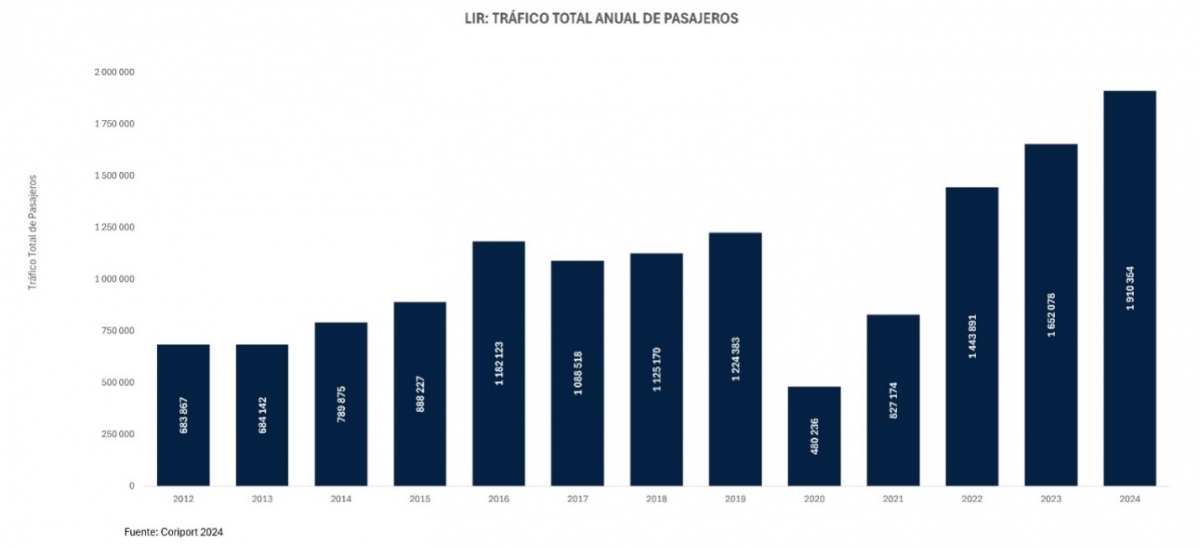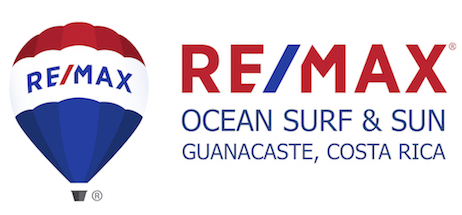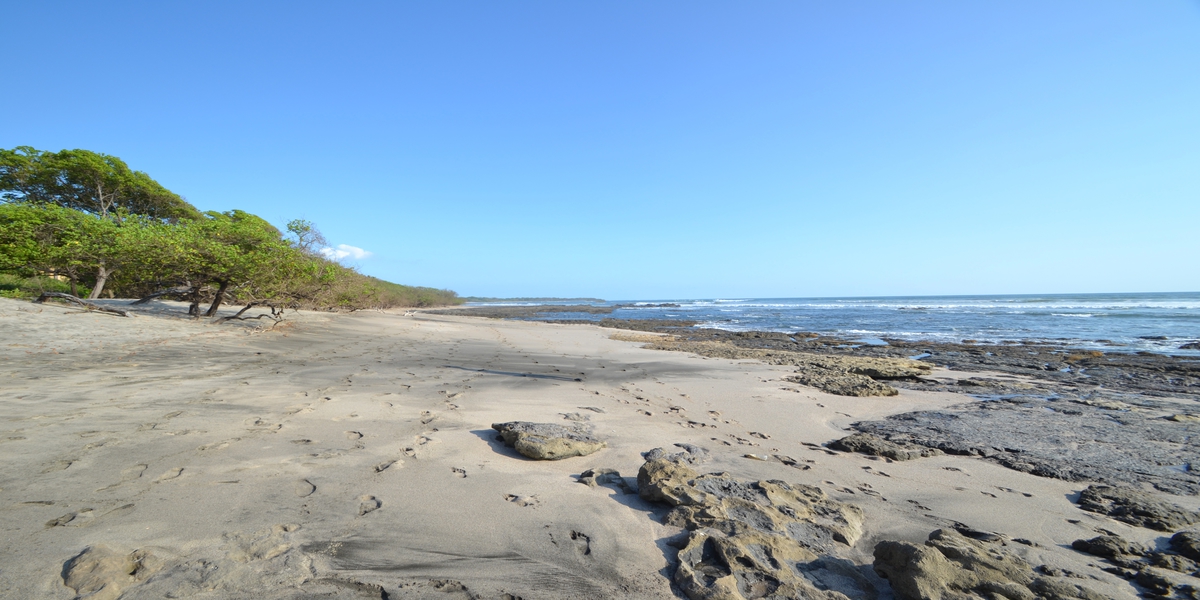Guanacaste Airport Sets New Passenger Record
Guanacaste Airport (LIR) in Costa Rica recorded a total of 1,910,354 passengers in 2024, representing a 16% year-over-year growth compared to 2023 and setting a new visitation record for the airport. The busiest day in 2024 was Saturday, March 30, with the arrival and departure of 11,603 passengers, followed by Saturday, December 21, with 11,133 passengers at Guanacaste Airport.
Toronto, Los Angeles, and Miami were the top origin markets from which passengers arrived at Guanacaste Airport during the year. This solidifies North America as the primary market for the airport terminal, with the Canadian market showing the highest increase. In 2024, Guanacaste Airport inaugurated four direct routes from Seattle, San Francisco, Boston, and Philadelphia. It also successfully established the Montreal route as a year-round service, which previously operated seasonally, and for the first time, it began the high season in October.

The airlines offering the most weekly flights are American, Delta, and United Airlines. Guanacaste Airport offers nonstop flights to various destinations across the United States, Canada, and Europe. The following is a list of these destinations along with the respective airlines operating the routes:
United States:
- Atlanta (ATL): Delta
- Boston (BOS): Delta, JetBlue
- Charlotte (CLT): American Airlines
- Chicago (ORD): American Airlines
- Dallas/Fort Worth (DFW): American Airlines
- Denver (DEN): United
- Houston (IAH): United
- Los Angeles (LAX): Alaska Airlines
- Miami (MIA): American Airlines
- Minneapolis (MSP): Delta, Sun Country Airlines
- New York City (JFK): American Airlines, JetBlue
- Newark (EWR): United
- Philadelphia (PHL): American Airlines
- San Francisco (SFO): Alaska Airlines
- Seattle (SEA): Alaska Airlines
Canada:
- Calgary (YYC): WestJet
- Montreal (YUL): Air Canada, Air Transat, Sunwing
- Toronto (YYZ): Air Canada, Air Transat, Sunwing, WestJet
Europe:
- Amsterdam (AMS): KLM (via San José)
- London Gatwick (LGW): TUI Airways
- Zurich (ZRH): Edelweiss Air
Please note that flight schedules and destinations are subject to change.
According to the annual report from VINCI Airports, the private operator that manages Guanacaste Airport, LIR is one of the network’s units that reached new traffic levels and achieved double-digit growth. Throughout 2024, the global traffic at the more than 70 airports in the VINCI Airports network reached nearly 318 million passengers.
“We are very pleased that Guanacaste Airport is establishing itself as one of the most important airports in the region. The 16% increase compared to the previous year shows us that more and more tourists are choosing Guanacaste as their preferred multi-destination,” said César Jaramillo, General Manager of Guanacaste Airport.
About CORIPORT
Coriport has been the concessionaire for the Costa Rican government since 2010, responsible for the design, construction, operation, and maintenance of the passenger terminal and associated facilities at the Guanacaste Airport (formerly known as the Daniel Oduber Quirós International Airport). Coriport has received Blue Flag certification (6 stars) and meets ISO 9001, ISO 14001, and ISO 50001 standards. Guanacaste Airport is the first carbon-neutral terminal in the region. LIR has been awarded the Customer Service Quality (ASQ) award for the sixth consecutive year in Latin America and the Caribbean in the category of airports handling less than two million annual passengers, granted by the Airports Council International (ACI), which represents over 2,000 airports.
About VINCI Airports
As the world’s leading private airport operator, VINCI Airports manages the development and operation of more than 70 airports across 14 countries. VINCI Airports leverages its expertise as a global integrator to develop, finance, build, and operate airports, utilizing its investment capacity and knowledge to optimize operational performance and modernize infrastructure while supporting environmental transition. In 2016, VINCI Airports became the first airport operator to commit to an international environmental strategy, setting the goal of achieving net-zero emissions across its entire network by 2050.






